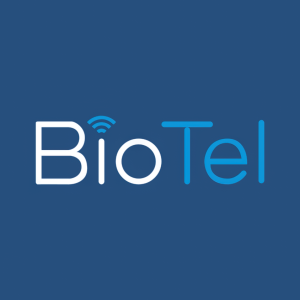HeartBeam’s Artificial Intelligence Algorithm Combined with Vectorcardiography (VCG) Outperforms Expert Cardiologists in Detecting Arrhythmias
New Data Presented at Heart Rhythm Society Conference Demonstrates Continued Progress with Company’s AI Program
Data Show That Applying AI to VCG Data Provides More Consistent and Reliable Detection of Atrial Flutter
In the study, HeartBeam AI was applied to a set of 173 VCGs, single-lead ECGs and 12-lead ECGs to identify atrial flutter. The same set of single-lead ECGs and 12-lead ECGs was reviewed by a panel of three electrophysiologists (EP panel) for atrial flutter, a common arrhythmia that significantly increases a patient’s risk for stroke. Key findings from the analysis show that HeartBeam AI combined with VCG:
-
Outperformed an expert panel reviewing single-lead ECGs, with a statistically significant
40% improvement in the detection of atrial flutter cases (sensitivity:97.3% for HeartBeam AI+VCG vs.69.4% for EP panel). -
Demonstrated a statistically significant
6% improvement in the detection of atrial flutter cases compared to an expert panel reviewing 12-lead ECGs (sensitivity:97.3% for HeartBeam AI+VCG vs.91.1% for EP panel). - Delivered zero variability in the detection of atrial flutter compared to the EP panel.
Additional details about the study can be found here.
Dr. Lampert commented, “The modern vectorcardiogram is nearly 100 years old, and yet we are cautiously breathing new life into it with the advent of novel acquisition technologies and deep learning algorithms. This study demonstrates that a deep learning algorithm applied to a transformed VCG performs comparably as well when applied to the gold-standard 12-lead ECG. The AI algorithm overall outperformed a panel of electrophysiologists in distinguishing atrial flutter from sinus rhythm with perfect agreement between multiple model predictions compared to significant interobserver variability amongst electrophysiologists, a finding particularly notable on single lead ECG analysis.”
HeartBeam’s core vectorelectrocardiography (3D VECG) technology captures the heart’s signals in three projections (X, Y, Z), similar to VCG, and synthesizes a 12-lead ECG. The Company’s first planned application of the 3D VECG platform technology is HeartBeam AIMIGo™, a credit card-sized device for patient use at home or anywhere, which is currently under review with FDA.
By leveraging AI to analyze the data-rich signals, HeartBeam believes it will be able to improve diagnostic accuracy and to unlock a more personalized approach to cardiac care for patients. As a patient uses AIMIGo over time, there will be a series of ECG readings. HeartBeam aims to leverage AI to analyze the data to provide a longitudinal view of the patient’s cardiac status and move beyond today’s 12-lead ECGs, which typically only provide a snapshot in time.
“The data is incredibly encouraging, showcasing the potential of our artificial intelligence program to improve diagnostic accuracy when a patient is outside of a medical facility,” said Branislav Vajdic, PhD, CEO and Founder of HeartBeam. “We’ll continue to build upon this strong foundation as we advance our AI program to revolutionize cardiac care management in the future.”
Dr. Lampert has no relevant conflicts of interest and HeartBeam did not fund his participation in this work or make the decision to submit the analysis for presentation.
About HeartBeam, Inc.
HeartBeam, Inc. (NASDAQ: BEAT) is a medical technology company that is dedicated to transforming cardiac care through the power of personalized insights. The company’s proprietary vectorelectrocardiography (VECG) technology collects 3D signals of the heart’s electrical activity and converts them into a 12-lead ECG. This platform technology is designed to be used on portable, patient-friendly devices such as a credit-card sized monitor, watch or patch. Physicians will be able to identify cardiac health trends and acute conditions and direct patients to the appropriate care – all outside of a medical facility, thus redefining how cardiac health is managed in the future. For additional information, visit HeartBeam.com.
Forward-Looking Statements
All statements in this release that are not based on historical fact are "forward-looking statements." While management has based any forward-looking statements included in this release on its current expectations, the information on which such expectations were based may change. Forward-looking statements involve inherent risks and uncertainties which could cause actual results to differ materially from those in the forward-looking statements, as a result of various factors including those risks and uncertainties described in the Risk Factors and in Management’s Discussion and Analysis of Financial Condition and Results of Operations sections of our Forms 10-K, 10-Q and other reports filed with the SEC and available at www.sec.gov. We urge you to consider those risks and uncertainties in evaluating our forward-looking statements. We caution readers not to place undue reliance upon any such forward-looking statements, which speak only as of the date made. Except as otherwise required by the federal securities laws, we disclaim any obligation or undertaking to publicly release any updates or revisions to any forward-looking statement contained herein (or elsewhere) to reflect any change in our expectations with regard thereto or any change in events, conditions or circumstances on which any such statement is based.
View source version on businesswire.com: https://www.businesswire.com/news/home/20240520966687/en/
Investor Relations Contact:
Chris Tyson
Executive Vice President
MZ North America
Direct: 949-491-8235
BEAT@mzgroup.us
www.mzgroup.us
Media Contact:
media@heartbeam.com
Source: HeartBeam, Inc.







